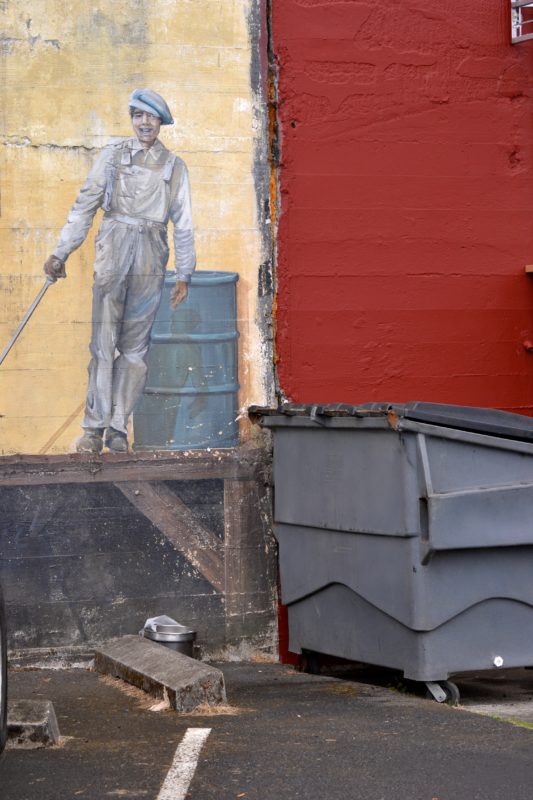
I really, really like the coastal town of Astoria, Oregon, home to one of the best photographic galleries on the West Coast, http://lightbox-photographic.com, various engineering feats like columns and bridges, a number of quirky characters and an even larger number of sea lions.

It is a down to earth, community oriented, working class town filled with the descendants of the Finns who worked in the fisheries and the Chinese who slaved in the canneries until the industries disappeared in the 1980s. It has seen its share of tragedies (burnt to the ground twice) and economic hardship, it breathes history and is home to an ever increasing number artists. My kind of place.
I would NEVER move to Astoria. My decision is heavily influenced by emotions. In this case a disproportional dread of a watery death. However likely or unlikely a mega earthquake with subsequent tsunami might be, the fear it evokes in me is enough to influence my assumptions of likelihood and thus my decision to stay far away. Thus strong affect misleads with regard to judging probabilities.
“Better be safe than sorry” captures a fundamental truth of decision making: we want to avoid regret at all cost. We use gut feelings, so called somatic markers, that appear when thinking about something negative or positive, a slight arousal that we register without necessarily being conscious of it. These markers, often derived from correctly remembered earlier experiences, will drag us away from negative feelings. (This is research done by neuroscientist Antonio Damasio and colleagues, incredibly interesting work. https://www.youtube.com/watch?v=1wup_K2WN0I) Those deprived of these gut feelings, due to neurological brain damage, are paralyzed when it comes to making even simple decisions, like choosing a place to eat.
And yet: however accurate we are in remembering our feelings, we turn out to be lousy at predicting them, which further complicates the picture of decision making. In a nutshell, during this “affective forecasting” we overestimate both how much we will regret sup-optimal choices, and how long that regret will last. The same holds for positive emotions as well – we often predict that we feel in the future what we feel now, that it brings us enormous joy and will last for a long time. All, alas, not true. So think hard before you buy that expensive toy that right now seems so overwhelmingly desirable!

Astoria mural
